We’re really excited to introduce our new Student Board members, who have been working hard with us since October. Expect to see a lot more from them in the coming months! Here they are, in their own words.
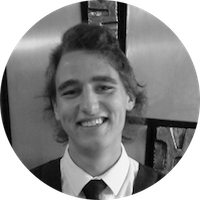 Tom Jalink
Tom Jalink
Hello everyone, I am Tom Jalink, the Dutch representative on the editorial board. In the twenty years that I’ve been roaming this earth I have devoted myself to various hobbies; music, sports, writing, and many more. In the future I hope to be busy with research and writing articles in the field of Psychology. For now my focus is on the Mindwise project, a new and exciting adventure!
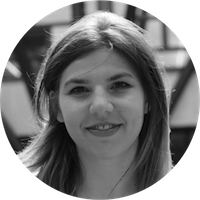 Anja Ernst
Anja Ernst
I am a research Master student at the department of Psychometrics and Statistics and (of course) an aspiring researcher. I have been a part of the Mindwise student board for over a year a now and I enjoyed how it put me in touch with the research that is done at our faculty and the people who conduct it. I hope Mindwise can do the same for you and give you the opportunity to be more connected to our faculty and the people in it. I am looking forward to all the Mindwise projects this year and all the feedback and comments we will get from you!
 Airi Yamada
Airi Yamada
I joined Mindwise as a 3rd year student, hoping to expand the platform where Psychology students can share, communicate and discover knowledge. I am very much interested in how Psychology extends into various aspects of daily life – design, technology, legislation – among many others. I’m also a fan of music, thriller novels, and delicious meals.
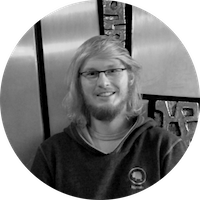 Joscha Bangert
Joscha Bangert
My name is Joscha Bangert and I started studying at the RuG in 2013. I follow the English Psychology Bachelor program and assist in research. The field of study I feel most interested in is Industrial and Organizational Psychology. I was born in Bremen, Germany in 1992 and after finishing High School there, I went abroad for a year to volunteer in a High School in New Zealand. Among the things I enjoy most are travelling, sports, meditation, and making music. I also hang out with friends a lot and I like cooking.
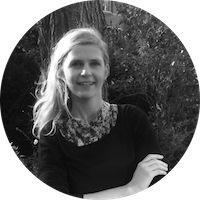 Fenja Kruse
Fenja Kruse
My Name is Fenja Kruse. I am a trained Occupational Therapist and I have worked the last for years in the specifically field of neurological and pediatric diseases. The linking of professional knowledge and human empathy is very meaningful to me. To be part of the recovery process has encouraged me to be active in the whole therapeutic studies range. After completing my practical studies, it was clear to me that I wanted to discover more on this specific field and to venture into the world of Psychology, so here I am, studying Psychology in Groningen. When I am not busy with learning for the exams, reading psychology books, writing and talking about psychology I am interests in various other things like: cooking with friends, doing some sport activities and just enjoy the life. Mindwise is the perfect opportunity to look behind the scenes, meet interesting researcher, lecturer and students.
 Pelin Diraki
Pelin Diraki
My name is Pelin Diraki, I come from the quirky and lovely city Berlin where I was born 20 years ago. This year, I started my Psychology bachelor programme at the RUG and I find it amazing so far. What drives and fascinates me when it comes to Psychology is that it clearly dominates our lives. When I am not reading psychological articles, I love to draw and write. Art is such an important part of my life; it gives me the freedom to express my emotions and thoughts, which is good because I am quite emotional. I like to explore attitudes that differ from mainstream ones and may appear at first sight strange, weird, unusual, and even bizarre. With writing, I also found another way to express my moods in order to get a more and better understanding meaning of the world around me and myself. Despite having written some short stories and poems, I dream about finishing my own first novel. Photography is another huge interest of mine in order to show how I see the world. I joined Mindwise in order to be part of this exciting and unknown journey of creative ideas and new experiences.
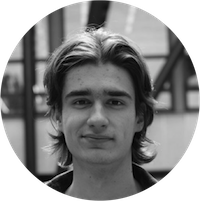 Yavor Ivanov
Yavor Ivanov
The decision to go abroad and study Psychology came unexpected and perhaps shocked my parents quite a lot. After all, I devoted most of my childhood and adolescence to drawing, design, music, …and video games. But my choice of Psychology was one rooted deep in my long fascination with the experience of being a human. Thus, my some of main interests in Psychology are the human cognition, how the senses merge into a coherent experience, and how the brain functions in different states of consciousness (such as wakefulness, sleep, meditation, a life-bending DMT trip, etc.) .
I think science should be way more popular in our civilization, as it serves as the basis for its “success”. This is the biggest reason why I wanted to become a part of Mindwise: to help people understand just a bit more about their life, and hopefully their neighbor’s and employer’s lives as well. Working alongside Mindwise’s team for the past year has helped me grow as a person, broaden my horizons and let me meet some of the most inspiring people in my life.
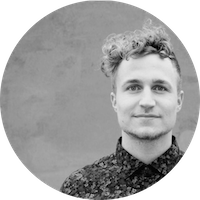 Marco Schlosser
Marco Schlosser
Working with Mindwise over the past year has been an amazingly enriching experience. One of the highlights for me was the establishment of our MW podcast, which we wish to maintain and develop. I also appreciate MW’s role in encouraging students to write and submit blog posts.
My main interests surround altered states of consciousness and their potential utility for the therapeutic process, through their impact on the perception of the self and our relationship to death. More specifically, I am captivated by research on intensive meditation- or mindfulness-based interventions and psychedelic-assisted psychotherapy. (I am grateful that our University enabled me to write about these subjects: The Last Trip of your Life http://honoursreview.nl/the-last-trip-of-your-life.html). I am a supporter of more sensible, compassionate and science-based drug policies that focus on harm reduction and treatment (rather than criminalization) in response to non-violent drug misuse.
If you are interested in and/or skeptical about these topics, please feel free to contact me. I love pondering over these things. Maybe our conversations could be the groundwork for a Mindwise blog post.




